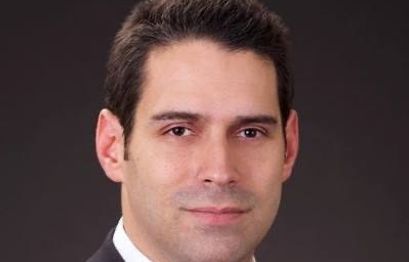As the cryptocurrency industry matures we’re seeing it take on the form and structure of well-developed markets, but what we’ve seen little talk of is insurance. Michael Beck wants to change that.
Mr. Beck is the project lead for UNION, a technology platform combining bundled protection and a liquid secondary market with a multi-token model. DeFI investors manage risk across smart contracts and protocols in a scalable system. People can buy specific protection for such composable risks as Layer-1, smart contract, exposure and transaction completion risk.
For all its potential, DeFi is difficult, risky and expensive, Mr. Beck said. While some have looked to different channels and chains, UNION wanted to develop a solution which did not sacrifice the composability and vibrance of the existing ecosystem in an attempt to address the risks and expense of the Ethereum network.
How about an insurance protocol, where you can reduce risk and make participation more affordable for everyone? Such a system would attract everyone from the investor with $500 to spare to the largest institutions.
Think of DeFi like a forest where every tree is a smart contract, Mr. Beck suggested. Composability is what allows ecosystem participants to jump from tree to tree, borrowing here, staking there and cashing out somewhere else.
But every smart contract has an execution cost, and if you want to hit the ground with money in your wallet and there’s no transaction finality you are out of luck. That drives everyone to use max gas to jump the queue and that makes transactions more expensive.
Where there is risk, there is the potential to hedge your bets and make someone reasonably comfortable they can exit within an attractive range.
Another issue is collateral optimization, Mr. Beck said. A decentralized lending platform may take 150 per cent of a floating currency to provide 100 per cent of a stable currency for people wanting to participate in DeFi.
“What we’re trying to do with collateral optimization is to create protection contracts where people borrow at or below money and use the rest as an insurance policy where they’re sharing risk with people who are willing to underwrite it,” Mr. Beck said.

UNION operates on a multi-token system. The core token, UNN, is available on Uniswap and Bitmax. It’s holding its price and has seen adoption into more than 3,500 wallets. Also serving as a governance token, UNN allows holders to have a say in settlements within the protocol and to delegate voting.
The second token is the uUNN token, which is a protection policy token. It represents policy rights and the entitlement to pay beneficiaries in a way similar to auto insurance, Mr. Beck said. Benefits are paid by pUNN tokens.
“People stake liquidity in benefit pool and each policy token draws proportionately from benefit pools,” Mr, Beck said. “You can get exposure to multiple policies across multiple contracts by paying into one pool. They get a portion of the underwriting for each one of those policies at a high level as an annuity for participating.”
Each policy token has specific risk associated with it and can draw from the associated risk pools. That allows investors to take and trade exposure to different risks. The technology allows liquidity without having to rewrite the policy each time, Mr. Beck said.










